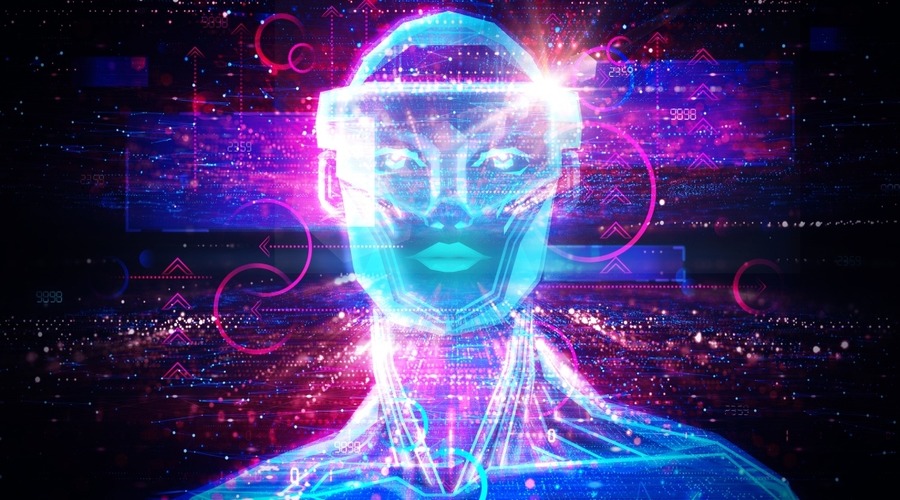The emergence of the metaverse has not only transformed the way we interact and communicate but also raised questions about its impact on politics and democracy. As more people start spending time in virtual worlds, the concept of citizenship and governance is rapidly changing. In this article, we will explore the concept of metaverse politics and how it is redefining democracy and citizenship in digital societies.
Introduction
The metaverse is a collective virtual shared space that is created by the convergence of virtual reality, augmented reality, and the internet. It is a fully immersive and interactive world that is populated by millions of users who interact with each other in real-time. As more people spend time in virtual worlds, the concept of governance and citizenship is rapidly changing. Metaverse politics is the study of the political, social, and economic implications of the metaverse.
The Rise of Digital Societies
The rise of digital societies is a phenomenon that has been gaining momentum for the past few years. People are spending more time in virtual worlds, and these virtual worlds are becoming more complex and sophisticated. The metaverse is a virtual world that is expected to be the next big thing in the world of digital societies. As more people enter the metaverse, the concept of citizenship and democracy is being redefined.
The Concept of Metaverse Politics
Metaverse politics is a term that refers to the political, social, and economic implications of the metaverse. It is a new field of study that is rapidly gaining popularity. Metaverse politics is concerned with the way in which virtual societies are governed and how decisions are made within these societies. It is also concerned with the way in which individuals and groups interact with each other within these virtual worlds.
The Challenges of Metaverse Politics
The challenges of metaverse politics are numerous. The first challenge is the lack of a clear legal framework. Currently, there are no laws that govern virtual worlds. This means that there is no clear legal mechanism for resolving disputes, enforcing contracts, or protecting individual rights within virtual worlds. The second challenge is the lack of transparency. The decisions that are made within virtual worlds are often opaque and difficult to understand. The third challenge is the lack of accountability. In virtual worlds, it is often difficult to hold individuals or groups accountable for their actions.
The Impact of Metaverse Politics on Democracy
The impact of metaverse politics on democracy is significant. The metaverse has the potential to empower individuals and groups that are traditionally marginalized in the real world. For example, virtual worlds can provide a platform for individuals to express their political views and engage in political activism. Additionally, virtual worlds can provide a platform for individuals to organize themselves and form political parties or interest groups.
The Role of Citizenship in Digital Societies
The concept of citizenship is being redefined in digital societies. In virtual worlds, citizenship is often defined by participation. To be a citizen of a virtual world, one must participate in that world. This participation can take many forms, such as creating content, participating in social events, or contributing to the development of the virtual world.
The Role of Virtual Economies in Metaverse Politics
Virtual economies are an integral part of the metaverse, and they play a significant role in metaverse politics. In virtual worlds, individuals and groups can create and exchange virtual goods and services. The value of these goods and services is determined by the community within the virtual world. As virtual economies become more complex, the need for regulation and governance becomes more pressing. Virtual economies can have a significant impact on the real economy, and the government may need to intervene to ensure that these economies are functioning in a fair and transparent manner.
The Challenge of Maintaining Privacy and Security in Virtual Worlds
Virtual worlds are vulnerable to privacy and security breaches. As more people enter the metaverse, the risk of cyber attacks and identity theft increases. Virtual worlds often collect large amounts of personal information, and this information can be used for malicious purposes. Governments and virtual world operators will need to work together to ensure that virtual worlds are secure and that individuals’ privacy is protected.
The Impact of Metaverse Politics on Real-World Politics
Metaverse politics can have a significant impact on real-world politics. Virtual worlds can provide a platform for individuals to engage in political activism, and these activities can spill over into the real world. Virtual worlds can also provide a testing ground for new political ideas and policies. Governments may need to pay attention to the activities taking place within virtual worlds to ensure that they do not undermine real-world politics.
The Role of Artificial Intelligence in Metaverse Politics
Artificial intelligence (AI) is becoming increasingly prevalent in virtual worlds. AI can be used to automate certain tasks within virtual worlds, such as customer service or content moderation. AI can also be used to make decisions within virtual worlds. As AI becomes more prevalent, the need for regulation and governance becomes more pressing. Governments may need to intervene to ensure that AI is being used in a fair and transparent manner.
The Challenge of Cultural Differences in Virtual Worlds
Individuals from different cultural backgrounds often populate virtual worlds. These cultural differences can lead to misunderstandings and conflicts within virtual worlds. Virtual world operators and governments will need to work together to ensure that virtual worlds are inclusive and respectful of cultural differences.
Conclusion
The emergence of the metaverse is transforming the way we think about politics, democracy, and citizenship. The metaverse has the potential to empower individuals and groups that are traditionally marginalized in the real world. However, as virtual worlds become more complex and sophisticated, the challenges of metaverse politics are also becoming more pressing. The lack of a clear legal framework, transparency, and accountability are just a few of the challenges that need to be addressed. Nevertheless, the potential benefits of the metaverse are significant, and metaverse politics will become an increasingly important field of study in the years to come. As we continue to explore the metaverse and its implications, we must also work to ensure that it is governed in a fair, transparent, and inclusive manner.



